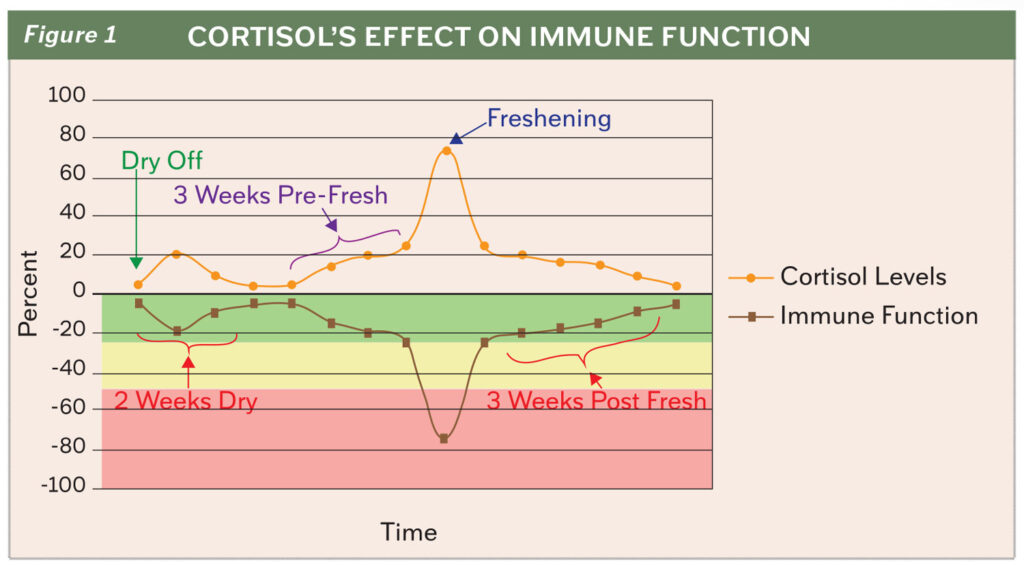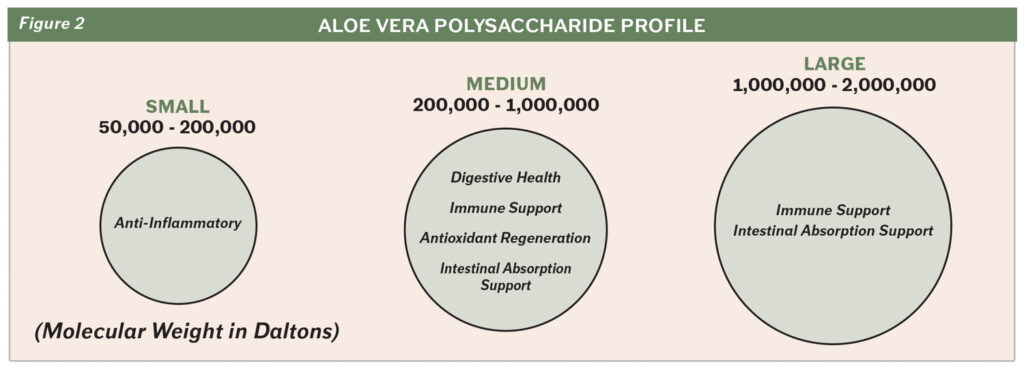The Science Behind Aloe’s Use In Livestock
Click here to view as a pdf: The Science Behind Aloe’s Use in Livestock
Director of Technical Services
With the passing of the Veterinary Feed Directive in 2015, which requires a veterinary prescription for most antibiotics to be added into feed, many livestock producers have become interested in non-prescription alternatives to help keep their animals healthy and productive. As a result, the use of herbal supplements and flavoring agents in livestock diets has gained in popularity. Aloe vera, an herbal agent with researched health benefits, can be fed to livestock as a feed flavoring agent in accordance with the American Association of Feed Control Officials standards and guidelines. Crystal Creek® has aloe vera products labeled for use in livestock feed in liquid, pelleted and meal forms.
How Aloe Works in the Body
The aloe plant has over 200 compounds which are responsible for its medicinal and growth promoting properties. Of these, the polysaccharide acemannan is one of the most versatile compounds, having been shown to:
- Stimulate the immune system
- Provide antimicrobial activity and
- Have anti-inflammatory function
Specifically, acemannan has been shown to activate macrophages, a specific part of the immune system that fights infection. It also has been shown to increase the activity of both B-lymphocytes and T-lymphocytes, which are the cells responsible for producing antibodies. These properties have made the use of aloe in various livestock raising applications a focus of continuing research and development.
The Research
- Aloe has been shown to increase rumen microbial metabolism which leads to increased volatile fatty acid production.
- Poultry supplemented with 1% aloe in their diet had greater body weight gain, better feed intake and improved feed conversion rates than those fed diets without aloe.
- Broiler chickens fed 2 oz of liquid aloe per gallon of drinking water showed a significant increase in antibody titers to vaccines when compared to the control broilers that did not get aloe in their water.
- Broiler chickens fed aloe showed less gastrointestinal irritation and lower coccidia oocyst shedding in their feces compared to the control broilers.
- Weaned pigs fed 0.05% aloe polysaccharide in their diet had increased average daily gain and a reduced incidence of diarrhea and weaning stress.
Practical Applications
Stress is defined as a state of strain from adverse or demanding conditions. Livestock can be stressed by many different factors: weaning, pen movement, dehorning, vaccinating, shipping, production demands, weather and flies. Some of these stressors can be reduced by good management, but not all stressors can be eliminated. The immune system of an animal has the ability to resist infection or disease. However, when animals are stressed, they are more vulnerable to disease due to decreased immune function. Figure 1 depicts the effect of cortisol on the immune system of a lactating dairy cow during freshening. Cortisol is a hormone that is released when animals are stressed. As the cortisol level increases, immune function decreases. Once a stressful event has occurred, cortisol levels will eventually come down but it can take 2-3 weeks for levels to return to normal. During this time, livestock are more vulnerable due to their decreased immune function.
Crystal Creek® offers 3 different types of aloe product; each for a different application.
- Crystal Pellets™: a pelleted aloe vera product best suited for inclusion into grain mixes or being top dressed
- Crystal Meal™: a granular aloe vera product for inclusion into ground feed
- Crystal Creek® Whole Leaf Aloe Vera Juice: a liquid aloe for inclusion in water, milk or oral drenches
The natural ingredients in these products have been scientifically proven to decrease inflammation, stimulate the immune system along the gastrointestinal tract, promote nutrient absorption in the lower gastrointestinal tract and promote antioxidant regeneration. The complete polysaccharide profiles found in Crystal Pellets™, Crystal Meal™ and Crystal Creek® Whole Leaf Aloe Vera Juice are made up of small, medium, and large molecular weight molecules. The polysaccharide’s molecular weight is very important and helps to determine what body system the polysaccharide supports. Figure 2 shows the breakdown of aloe vera’s polysaccharides according to their molecular weight and the area of effect each molecular weight molecule has on the animal’s immune system.
Not All Aloe Products Are the Same
Some companies are marketing aloe with a confusing lab test called the Methanol Precipitable Solids (MPS) test. The MPS test measures total precipitable solids and sugars within a product. The MPS test does not accurately distinguish between the active polysaccharides contained in an aloe product and other inert or inactive polysaccharides. That is to say that a product can have a high MPS test but have low amounts of active aloe polysaccharides, resulting in poor overall function.
Crystal Creek® uses an independent third-party lab with the approved testing method of high performance liquid chromatography (HPLC) to independently verify our aloe vera sources. HPLC testing can separate the polysaccharide molecules to tell what sugars come from the aloe plant and provide the quantity of each polysaccharide size range that is present.
The International Aloe Science Council (IASC) is an international committee that is compromised of scientists from around the world that specialize in aloe science. The IASC endorses the HPLC test and rejects the MPS test.
Manufacturing techniques can vary and can significantly impact molecular weight distribution and retention, thus impacting performance of products. Crystal Creek® prides itself on thoroughly testing our aloe products with methods approved of by the IASC.
All Crystal Creek® Aloe Sources Are:
- Compliant with the International Aloe Science Council’s standards
- Subject to quality control testing with HPLC analysis (both from the manufacturer and our own internal quality control testing protocol)
- Tested for a confirmed molecular profile and the amount of each active polysaccharide compound
- Certified for use on organic operations
Choosing the right aloe product is more than just buying on price. Purchasing an aloe product that is backed by recommended IASC scientific testing will assure your animals are receiving a quality, proven nutritional support. Crystal Pellets™, Crystal Meal™ and Crystal Creek® Whole Leaf Aloe Vera Juice are varying forms of aloe vera that can easily be added to your livestock’s diet. To learn more about these products and how they can be used on your farm, call Crystal Creek® today.


